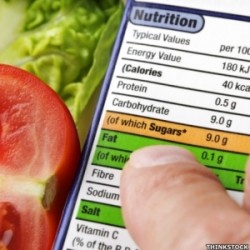Responsibility Deal: kids’ products are ‘blind spot’

More than two years since the first food industry signatories to the deal were announced, the Food and Drink Federation (FDF) and the Department of Health (DH) have provided positive annual progress reports.
But, citing Dr Kirsten Rennie, senior researcher, Hertfordshire University, Malcolm Clark, co-ordinator of Sustain’s children’s food campaign, told FoodManufacture.co.uk kids’ products were a blind spot for food manufacturers.
Rennie released research in May revealing that, based on nutritional information collected from hundreds of products aimed at children and sold in seven major supermarkets, per 100g most were higher in energy and fat content than adults’ foods.
‘Findings were pretty stark’
“It’s great that Kirsten has done the study,” said Clark. “The great question is whether the DH will be taking this into account [in industry talks]. The findings were pretty stark and completely inexcusable. I would love to see how manufacturers defend themselves.”
At an All Party Parliamentary Food and Health Forum in the House of Commons on July 16, Rennie said the only products in the study indicating a better nutritional profile were children’s ready meals. Here, energy and salt content were lower than for adults’ foods.
Yogurts and cereal bars were found to be particular offenders. “We’re not talking about one or two yogurt brands … it’s as a whole,” said Rennie. In the case of one cereal bar product marketed at children, a third of the product weight was found to consist of pure sugar.
Products surveyed were only deemed to be aimed at children if marketing included statements designed to appeal to them or had a specified age range on packs, she said. “A smaller children’s portion often masks the content.”
Portion size
Portion size could also be shrunk so products could avoid a red colour on front-of-pack traffic light, and hybrid, labels, she said.
Rennie also expressed concern about products that carried ‘no added sugar’ claims on front-of-pack, but flagged up agave nectar and fruit juice concentrate content, still effectively sugars, on the back.
United Biscuits has just declared that it has made strong progress on its salt reduction pledge, with 94% of its products meeting DH Responsibility Deal salt targets.
However, it claimed DH reporting did not properly reflect its efforts, as it only highlighted that it had achieved its targets in one of four categories. That was because all products in a category had to meet maximum and average fat, salt and sugar targets to count.
Seabrook Crisps
The FDF cited the completion of a recent project by Seabrook Crisps that had reduced salt by an average of 20% across its full range. The firm is now targeting a 5–7% reduction in saturated fat content in some of its variants within the next two years.
Many more manufacturers had made big achievements in regard to pledges related to the Responsibility Deal, said FDF director of communications Terry Jones.
“Two years on, we start to see demonstrable progress on transfats, salt and calories and lots of our members have signed up to pledges on food, health and work and physical activity,” Jones said.
The most recent Responsibility Deal achievements published by the DH on its website include Tesco cutting calories in own-label soft drinks by more than one billion in 2012.
Other highlights include Burton’s Biscuits reducing national calorie intake in 2013 by 700,000kcal by reformulating its products.
















